 14 citations,
January 2004 in “Journal of Biochemical and Molecular Toxicology”
14 citations,
January 2004 in “Journal of Biochemical and Molecular Toxicology” Mustard gas exposure causes hair loss, but treating with N-acetylcysteine can prevent it.
 94 citations,
January 2007 in “Cutaneous and Ocular Toxicology”
94 citations,
January 2007 in “Cutaneous and Ocular Toxicology” Iranian veterans exposed to sulfur mustard suffer from long-term skin itching and eye damage, with some risk of skin cancer and ongoing management challenges.
 16 citations,
August 2003 in “Journal of The American Academy of Dermatology”
16 citations,
August 2003 in “Journal of The American Academy of Dermatology” Nitrogen mustard was not very effective for hair regrowth in alopecia areata and has potential skin cancer risk.
3 citations,
July 2023 in “Cells” MG53 helps reduce skin damage caused by nitrogen mustard.
January 2016 in “Huanjing yu Jiankang Zazhi” 4 citations,
November 1970 in “PubMed” Mustard oil and unsaturated fatty acids can stop the growth of scalp fungus and prevent it from infecting hair.
 January 2020 in “Nasza Dermatologia Online”
January 2020 in “Nasza Dermatologia Online” A mixture of Dijon mustard, turmeric powder, and linseed oil can effectively treat alopecia barbae.
 March 2024 in “World Journal Of Advanced Research and Reviews”
March 2024 in “World Journal Of Advanced Research and Reviews” Herbal hair oil helps improve hair health and prevent hair problems.
 49 citations,
November 1992 in “Archives of dermatology”
49 citations,
November 1992 in “Archives of dermatology” Different treatments for alopecia areata have varying success rates and side effects; intralesional steroids are most effective.
 39 citations,
May 2004 in “Clinics in Dermatology”
39 citations,
May 2004 in “Clinics in Dermatology” The document concludes that treatment for cutaneous T-cell lymphoma should be customized to each patient's disease stage, balancing benefits and side effects, with no cure but many patients living long lives.
 September 2017 in “Journal of Investigative Dermatology Symposium Proceedings”
September 2017 in “Journal of Investigative Dermatology Symposium Proceedings” A 73-year-old woman with Hypopigmented Mycosis Fungoides, a rare skin lymphoma, experienced disease progression despite treatment, emphasizing the need for ongoing monitoring.
Alkylating agents can kill cancer cells but may cause skin and allergic reactions.
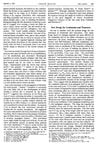 February 1961 in “The Lancet”
February 1961 in “The Lancet” Some new drugs show potential for treating blood cancers but have serious side effects and need more research.
June 1986 in “Journal of the American Academy of Dermatology” Topical minoxidil showed promise for early male pattern baldness.
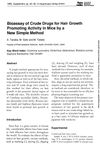 16 citations,
January 1980 in “Planta Medica”
16 citations,
January 1980 in “Planta Medica” Some natural extracts and one hair tonic can promote hair growth in mice.
1 citations,
November 1981 in “PubMed” No clear conclusion available.
December 2021 in “Asian journal of pharmaceutical and clinical research” The homemade hair oil made from natural ingredients helps hair grow, reduces hair fall, dandruff, and graying, and makes hair shiny with few or no side effects.
 57 citations,
October 2021 in “Journal of ethnopharmacology”
57 citations,
October 2021 in “Journal of ethnopharmacology” Indian herbal medicine shows promise for treating skin diseases but needs more research to prove effectiveness.
 19 citations,
March 2003 in “Journal of Investigative Dermatology”
19 citations,
March 2003 in “Journal of Investigative Dermatology” Mechlorethamine treatment regrew hair in mice by killing immune cells causing hair loss without harming hair follicles.
 March 2009 in “Journal of Biomedical Research”
March 2009 in “Journal of Biomedical Research” Herbal extract mixtures may speed up hair growth and could help treat baldness.
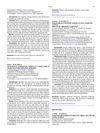 September 2011 in “Clinical Biochemistry”
September 2011 in “Clinical Biochemistry” Glycoconjugates help heal hair follicles during skin repair.
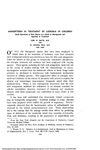 23 citations,
June 1950 in “American journal of diseases of children”
23 citations,
June 1950 in “American journal of diseases of children” Aminopterin was somewhat effective in acute lymphoblastic leukemia in children but did not increase survival time.
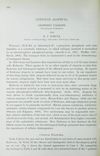 21 citations,
August 1960 in “British journal of dermatology/British journal of dermatology, Supplement”
21 citations,
August 1960 in “British journal of dermatology/British journal of dermatology, Supplement” Endoxan often causes hair loss, which usually starts in the third week of treatment.
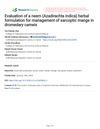 1 citations,
January 2023 in “Research Square (Research Square)”
1 citations,
January 2023 in “Research Square (Research Square)” A neem-based herbal treatment worked better than ivermectin for sarcoptic mange in camels, improving their recovery and overall health.
 172 citations,
November 1983 in “Journal of The American Academy of Dermatology”
172 citations,
November 1983 in “Journal of The American Academy of Dermatology” Chemotherapy can cause skin problems like hair loss, mouth sores, and skin darkening, and recognizing these can affect treatment decisions.
 95 citations,
December 1980 in “The New England Journal of Medicine”
95 citations,
December 1980 in “The New England Journal of Medicine” Minoxidil helped bald patient regrow hair.
 94 citations,
October 2017 in “International Journal of Dermatology”
94 citations,
October 2017 in “International Journal of Dermatology” Lichen planus pigmentosus causes dark skin patches and is treated by avoiding triggers and using anti-inflammatory medications.
 54 citations,
November 1998 in “Archives of dermatology”
54 citations,
November 1998 in “Archives of dermatology” Avoiding certain nutrients and drugs may help manage pemphigus.
 45 citations,
January 2010 in “International journal of trichology”
45 citations,
January 2010 in “International journal of trichology” Topical immunotherapy, especially with DPCP, is effective for treating severe alopecia areata.
 23 citations,
July 2008 in “British journal of dermatology/British journal of dermatology, Supplement”
23 citations,
July 2008 in “British journal of dermatology/British journal of dermatology, Supplement” Topical contact sensitizers can treat certain skin conditions but are rarely used in the U.K.























